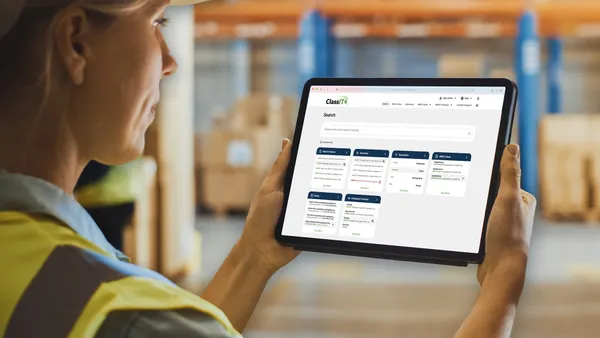The potential for technology to transform procurement seems endless. Automatic payments can ensure suppliers are paid on time and cash flow remains positive. Procurement leaders are looking at automation and artificial intelligence (AI) to manage contracts with vendors.
"There are opportunities for tech to eliminate work, rework and mistakes," Camille Batiste, vice president of global procurement at Archer Daniels Midland Company, told a media roundtable at The Institute for Supply Management's (ISM) 2018 conference in Nashville, Tennessee.
Blockchain, internet of things (IoT), machine learning — the list goes on of technologies that could revolutionize sourcing and purchasing.
Data: The most important tool in the toolbox
The proliferation of new technologies has created a company culture that's "hyperfocused on tech," said Craig Reed, chief procurement officer of the Agricultural Division of DowDuPont and chairman of the ISM Board.
The problems come when focus on technology turns to tunnel vision and forgetting the most important tool these technologies need to work: data.
Many companies "are not doing the foundational work to make sure the technology works," Batiste said.
Lack of baseline data can render technologies useless. Machine learning, for example, relies on a computer system using past data in order to "learn" and become smarter. The machine can't teach itself if it has no data as a starting point. Similarly, blockchain uses a series of ledgers or blocks that store data and records, but those ledgers aren't of use if they contain little to no data.
"My fear is all this technology goes away because we don't set the baseline," Reed said.
Cross-department collaboration helps set the baseline
Setting a baseline starts with gathering internal company data by breaking down the silos between various departments.
"There has to be some level of collective collaboration ... across different functions," Reed said, including departments such as finance, engineering and business transformation.
Department heads can facilitate some of that collaboration, by understanding the strengths and challenges of each company function.
"We tend to be humble. Procurement folks need to come forward," Batiste said. "We need to share all the good things we're doing."
At the same time, the C-suite and top leadership must also play a role in collaboration throughout the company, ensuring data and metrics are shared across the organization.
"Support from leadership is paramount," Batiste said.
CPOs are well-positioned to gather external data
While the baseline starts with internal data, the next step involves collecting data from external sources.
Company teams such as finance and engineering tend to focus internally, but procurement professionals are always building external relationships with suppliers and vendors.
"Who better to orchestrate those external resources?" ISM CEO Tom Derry said during the roundtable. Given the nature of the CPO, Derry said, that person is best positioned to study external factors and integrate them into company strategies.
CPOs who work with steel suppliers have valuable insight into prices of the metal, and how tariffs and trade concerns will impact the price. Procurement leaders play a "role in bringing that to bear," Reed said. Armed with the insight on steel prices, CPOs can bring add that information to their data, creating a solid baseline and foundation for adopting new technologies.














